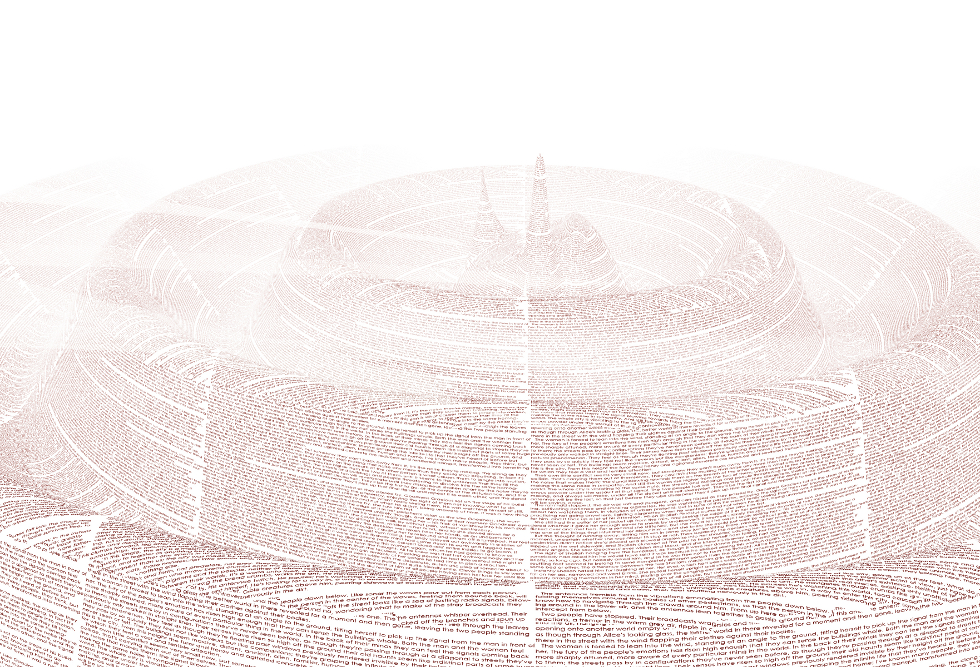
The single-page list of possible terms circulated to contributors to the Frequencies project on a genealogy of spirituality has the clean feeling that comes courtesy of the alphanumeric. All those capital Hs in a row; all that happy cacophony, from Horatio Alger to LSD to the White Dog Café (Philadelphia, PA), contained by the stuttering letter. Jarena John John John Johnny Jonathan Joseph. One is enjoined widely—“what comes to mind when you think of spirituality”—while sensing that one’s flights of association will be easily contained. You left out (speaking of them) John-John.
One could say that this is what spirituality itself does. It is elastic, while expressing common rules of order. It contains everything, while conforming to strict limits. As the curators note in their invitation, with some understatement: “Few incidents or characters in the history of spirituality can be contained within national borders.” But do we—yet—know what contains spirituality? Do we yet know if anything does, and thus whether there can be history (or genealogy) here, rather than simply classification?
These questions are not intended to threaten the project. One would be hard pressed, I suspect, to advance a preemptive critique of a history of spirituality—of the very idea of such a thing—that was not already considered in the Frequencies conference room. Of course such a history is impossible. That is why it must now be attempted.
I would like to contribute to this attempt, if not a preemptive critique, then something like the question of whether or how one could be disobedient to its terms—the question of the project’s concept. Like the question to spirituality itself, one asks: is there really anything that could not go on the list? This might seem a playful or obnoxious intervention. It is playful in tracking the spirit of the call while taking its investigative thrust to potentially absurd lengths; it is obnoxious in pretending serious engagement while revealing the project itself to be absurd. I mean the question in neither sense.
In elucidating what I do mean, it is instructive to bring to mind the late metaphysical work of spirituality connoisseur William James. James spent the better part of his career as psychologist and philosopher attempting to debunk metaphysics of its spiritualist pretensions, while also, not incidentally, carrying on with theosophists and occultists. After achieving notice for his essays on religion, pluralism, and belief, and at the same time as he was honing his pragmatic theory of truth, James developed his own metaphysical theory, which he called radical empiricism. Fascinating as a historical document, radical empiricism is distinguished mainly by the claim that the world is composed—not of mind and body, or temporality and eternity, or indeed any of the other famous dualisms in the metaphysical water, then and now. Radical empiricism was to be a monism, whose basic unit is experience.
James’s theory has the advantage of cohering with his pragmatist commitment to make truth something we can see, feel, taste, practice, do. His rejection of standard (in his view, “Hegelian”) metaphysics was that it posited a world (“Spirit”) subject to none of these things, a world therefore useless in providing a framework for the investigation of what really does exist and matter, among which James’s empiricism stressed the relations between things as much as things themselves. It is also worth noting that the “incident or character” of James’s philosophy always toyed with, and was consistently received in the light of, a fairly explicit nationalism. America would be the land of a properly grounded, empirically contained, pragmatic philosophy, cutting itself loose from the decadence of an ethereal European spirit forever spilling out into tyrannical and sloppily conceived social and political projects. James’s solution, a radical empiricism, makes such a spirit subject to the containment of American knowhow: experiment, revisability, and an overall temper of constructive, this-worldly optimism. Dams and railroads would be built; souls and their sicknesses studied, diagnosed, and allayed, if not cured.
Page 1 of 3 | Next page